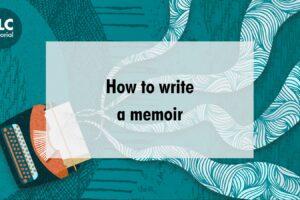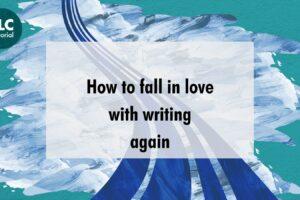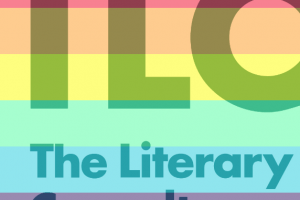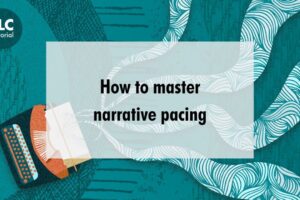I’m often asked how I manage to do so much, or receive glowing compliments about being a “such a trooper” and the amount of achievements accomplished in the five years since I started writing. There are no easy answers and many variables that a physically disabled writer with a degenerative spinal and auto-immune joint disease has to contend with. This blog is too short to elaborate on all the hurdles but I hope some of this will resonate with other physically disabled writers, whether living with ‘invisible’ conditions like MS, ME, auto-immune conditions, chronic pain or the loss of mobility that are immense physical impediments to accessing the mainstream literary industry. Perhaps these words will give courage to persevere and not lose hope. Because like any other wordsmith, I’m compelled to put those words on paper and no matter the stops and starts, the obstacles involved, I am a Writer, capital W, not wanting to be defined by my disability, my mixed Anglo-Indian heritage and neuro-divergence (synaesthesia), but by the quality of my work. The only definition I will accept however is a Writer who translates many personal experiences and those of women around the world who I have had the privilege to meet and listen to. Their conditions and struggles affect me deeply due to heightened empathy from synaesthesia.
So, how do I manage when my degenerative condition varies from day to day; when I live with chronic pain and increasing physical limitations on mobility, when daily tasks are difficult to assume and energy low along with managing chronic pain? Hmm, once again no simple answers apart from no longer reading all those tips on “how to manage your writing day” etc. I’ve tried everything and they certainly don’t always apply! It’s mind over matter, respecting your own physical limitations and doing what you can, when you can, though the following hurdles are some of the barriers that might make it much more difficult and frustrating for me or anyone else with a physical disability to break through and be published in my own right.
The literary industry in general wants us to participate in events, festivals and etc. “Jump the slush pile”; “build networks with agents and other writers”; “get out there, be seen”.
Much has been done over the last couple of years to facilitate access for under-represented groups, the latest being working class. But nothing is available for disabled writers in the mainstream. In four years of toddling to events with first a walking frame and then confined to a wheelchair, I have only ever counted three writers “on wheels” and I’m one of them, which makes me think that a talented author on the cusp of publication is a rare breed faced with extinction…
Here are some of the impediments we are faced with:
- Disabled Access – Not just door widths, steps, easily accessible and appropriate facilities but also transport – including additional costs. For example, obliged to use taxis instead of the Underground and paying for a support worker. Costs are doubled especially if overnight accommodation is required even if free low-income tickets are available.
- Ten minute coffee breaks and half hour buffet lunches – please no! By the time we have found and used the disabled toilets, we usually don’t have time to grab something to eat and there’s no discreet creeping into the back rows in a wheelchair. Time out to regain composure and energy are vital as well. Anyhow, there have been recent general discussions (and my many vociferations) about making events more accessible and improvements are being made, but I can sincerely say that of the various events I have managed to attend, The Literary Consultancy and the Free Word Centre are quite simply the best, offering utmost kindness as the cherry on the cake.
Next,
- Low income – many disabled people now live on the breadline with decreasing benefits. Lack of finances usually implies less food, less everything which can impact health, morale and motivation. How to pay for competitions, event attendance when your energy is consumed by day to day niggles about money? I personally have enough willpower and self-control to compartmentalise as much as I can, though disability and benefits do mean mountains of admin and immense frustration. So I shut out everything else until I physically drop and you have to scrape me off the sofa; then collapse for a couple of days and potter indoors while trying to catch up on everyday telephone calls, paperwork etc. Then back to writing or editing. I sometimes think this is alike to a self-imposed masochism as I push physical and grey matter boundaries in an attempt to keep up with the mainstream.
- Isolation – For many of us, just getting outdoors can be arduous for various reasons, including previously stated financial issues. Finding and joining a writing group is great if you can get there, if they exist. There’s not much going on in my city and there are no easily available accessible taxis, so I’m stymied on that score. Friends and family, a proactive network around us for moral and physical support are essential too – which I do not have, alas. It saps morale, motivation and inspiration when staring at the same four walls day in, day out.
So, to sum up – I unfortunately tick every hurdle box but which in turn, gives me incredible insight into what should be done to increase access and the kind of invaluable support TLC offer me as a Chapter & Verse mentee. I am still here, plodding along at a reduced pace but with oodles of work to be written if the right living, support and financial conditions are met, which is why I have taken the decision to embark on a new ‘journey’ creating unwanted but necessary upheaval. More about this later and hopefully I will come out the other side with a potential memoir under the belt, provisional title – “How Writing Saved My Life but Nearly Killed Me” – joking here! If not, I will carry on fighting to my last breath and words against perceptions, labels and refuse to be defined by my disability. Ignore the wheels below the waist, please, and look at the quality of my work and efforts first! Give people like me a chance to break through despite our ‘invisibility’. I have to write. It’s not cathartic, it’s imperative. Stories, novels – they are all films stored in my hard-drive of a brain, to be switched on, off; wind forward, rewind, waiting to come out. I am a Writer, capital W.










2 responses
Hi Lynn – just sent you an e-mail from me: Bella-writer-on-wheels
hi Lynne. Well said. I guess I would add to the long list of things we have to deal with, the emotional fall-out from the ailment itself and then the emotional fall-out from all the things we can’t ‘just get on and do anymore’.